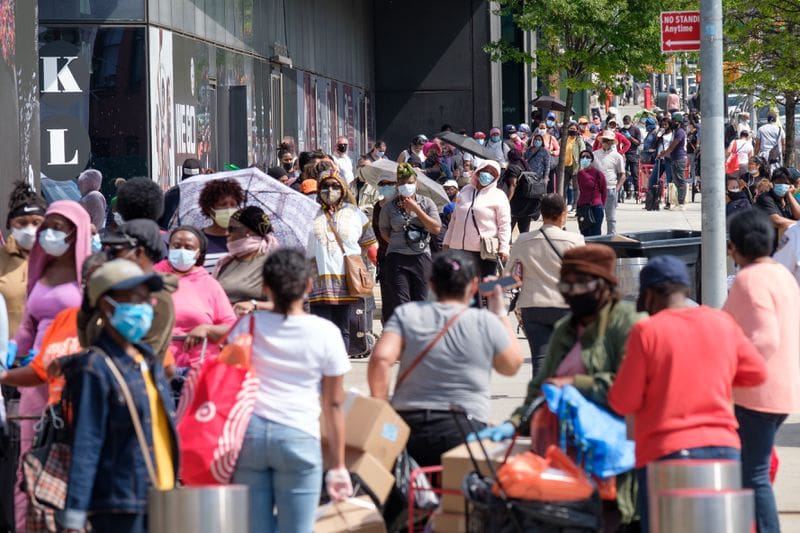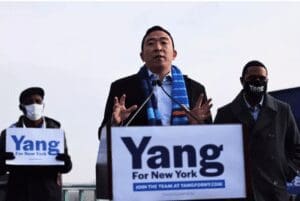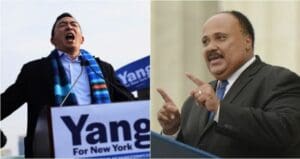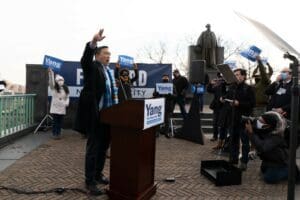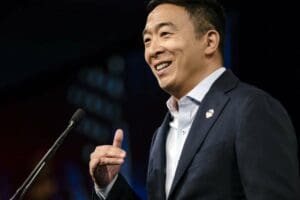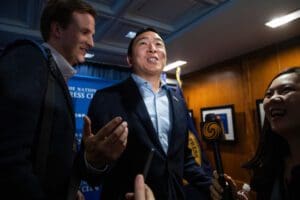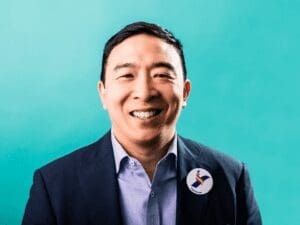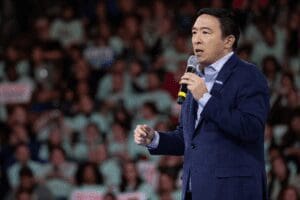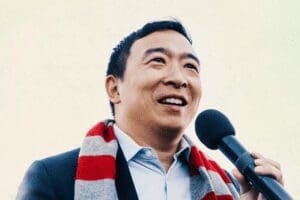Yang is a Democratic candidate for mayor of New York. King is a civil and human rights advocate.
By: Andrew Yang and Martin Luther King III
This weekend, as we celebrate the life and legacy of Dr. Martin Luther King Jr., it is worth reflecting on his wholehearted advocacy for cash relief as a core way of delivering on his dream of economic and racial justice.
In his final book, King wrote, “[O]ur emphasis must be two-fold. We must create full employment or we must create incomes.”
At a time when New York City is facing a years-long battle to return to its 3.5% pre-pandemic unemployment rate, the need to create and grow incomes is essential.
Expanding cash relief to Americans is a passion we share. The simplicity and profound impact of cash relief is what makes the idea so compelling. We are committed to spreading King’s anti-poverty legacy even as we come to the issue from different perspectives — one, a businessperson and current candidate for mayor; the other, Dr. King’s son and a civil rights leader.
Together, we are determined to ensure Americans are able to navigate our changing economy and increasing wealth inequality.
Most recently, we campaigned together across Georgia to elect Democratic Sens.-elect Raphael Warnock and Jon Ossoff. Georgians delivered the Senate to Democrats in part because Republicans failed to pass $2,000 stimulus checks. It’s telling that on his first day as incoming majority leader, Sen. Chuck Schumer advocated for such direct relief for most New Yorkers and Americans.
Now we are working to bring cash relief to New York City — creating the largest basic income program in the history of the country.
The program will build on the city’s cultural and economic dynamism, which is largely thanks to those who spearheaded projects and policies that sought to uplift New Yorkers. The CUNY system and its education of 500,000 New Yorkers, parks that millions visit every year, and the mass transit network are all examples of what can be accomplished when we marry New York-sized ambition with public service.
A Yang administration will build a $1 billion cash relief program for 500,000 New Yorkers in its first year.
Following King’s desire for equality, the cash relief program will not take into account immigration status or past experience with the criminal justice system. And individuals and families receiving assistance from other programs, such as Medicaid, will not lose their current benefits.
All that will be needed is an IDNYC card, which is a free and secure form of identification available to all residents of the city.
Over time, the city will distribute cash relief through a public bank that a Yang administration will prioritize. Access to this People’s Bank will be available through a municipal app as well as at physical locations in all five boroughs. Money for New Yorkers should be invested in and circulating around New York City — not through big banks with operations elsewhere. The program will increasingly scale up as our economy recovers and we unlock funding from the federal government.
This program is particularly needed now as the pandemic laid bare just how tenuous life is in the city for millions of New Yorkers. Still, it was not the root cause of our social and economic ills; the city has suffered from profound economic inequality for quite some time.
New York City now has an official unemployment rate about double the national average. The number would be even worse if the labor participation rate was taken into account. Working-age women and men throughout the five boroughs are opting out of even looking for jobs because the prospects are so grim here. The status quo has failed us.
Cash relief enables us to break away from the antiquated, paternalistic thinking that government should create barriers and strict regulations around how lower-income people should make use of their resources.
We will fundamentally shift the dynamic of government aid by empowering New Yorkers to make their own decisions.
By and large, the initial New Yorkers who will benefit from cash relief have been failed by government anyway, and we should move away from a heavy-handed approach.
The federal $1,200 stimulus checks earlier in the pandemic were partial proof of concept: The extra income lessened the economic shock of the pandemic and unburdened Americans of some of their financial insecurity during this crisis.
The checks and enhanced unemployment funds didn’t solve everything, but millions of Americans were able to rest a bit easier during a period of such upheaval.
For an inclusive recovery, we must nurture an anti-poverty agenda with cash relief as the cornerstone. Now more than ever, New York City needs a bold plan to get our city back on its feet. Our work here can inspire the entire nation to transform our economy and put more money in the hands of everyday people.
_____________________________
To see original article please visit: https://www.nydailynews.com/opinion/ny-oped-cash-relief-for-the-poor-in-nyc-20210117-tn3km6s37nfmzlnkhgk5fjbgny-story.html










